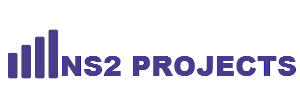- (0)
- 18
Nov -
Author : NS2 Projects Category : LATEST NS2 PROJECTS
In this paper, we investigate the cost-effectiveness of Wi-Fi solution for vehicular Internet access. We define the cost-effectiveness as the cost saving by deploying and operating a low-cost Wi-Fi infrastructure instead of a costly benchmark cellular network. To characterize the service quality of Wi-Fi deployment, we also define the normalized service delay which is the service time to fulfill a data application via the Wi-Fi network normalized by that via the cellular network. To derive the service time, we analyze the average throughput capacity of a generic vehicle in the Wi-Fi network and the average downlink capacity in the cellular network.
Especially, we propose deploying Wi-Fi access point at signalized intersection and study the fundamental influence of traffic signals (which yield an interrupted vehicle traffic) on Wi-Fi access. Then, we examine the tradeoff between cost-effectiveness and normalized service delay by identifying interplays between controllable (e.g., the density of Wi-Fi deployment and user’s satisfaction) and uncontrollable parameters (e.g., vehicle traffic statistics). Our results are very useful for network operators to make strategic planning of Wi-Fi deployment for vehicular Internet Access.
